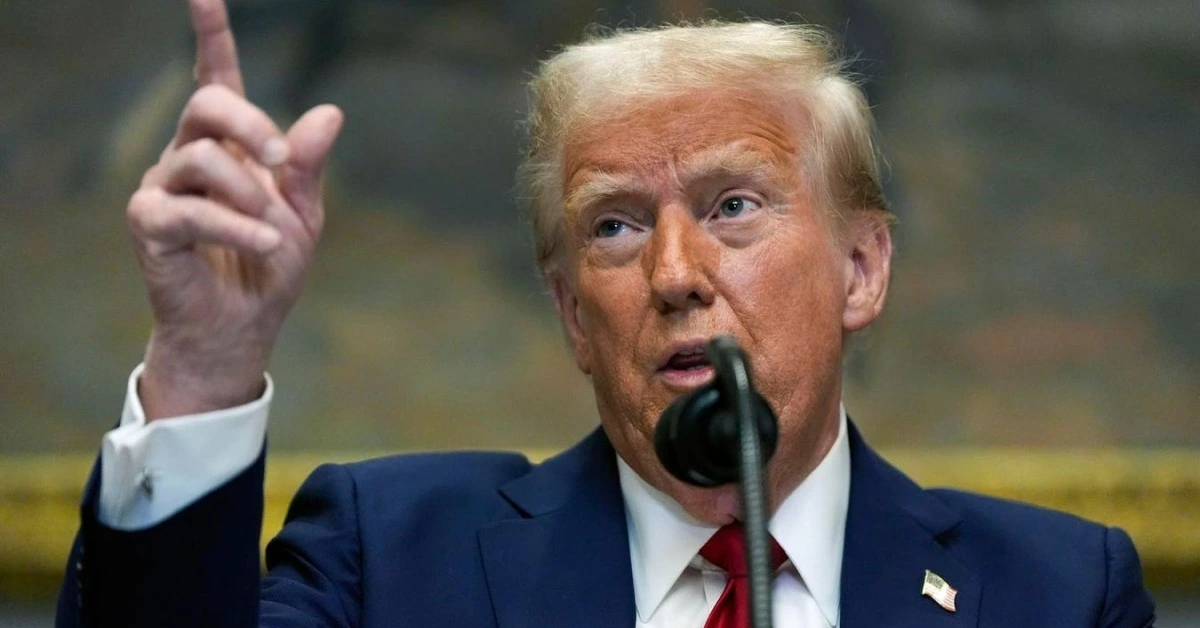
USA – The new U.S. administration has implemented a sweeping directive, halting all external communications from the Department of Health and Human Services (HHS) until February 1.
According to a memo issued by Acting HHS Secretary Dr. Dorothy Fink, this freeze includes a pause on regulations, announcements, press releases, social media posts, and website updates unless approved by a presidential appointee.
The freeze affects all 13 operating divisions of the HHS, including the Centers for Disease Control and Prevention (CDC) and the Food and Drug Administration (FDA).
While such pauses during political transitions are customary, the length of this ten-day halt has been described as unprecedented by experts.
Dr. Michael Osterholm, director of the University of Minnesota’s Center for Infectious Disease Research and Policy, expressed concern, stating, “I don’t see any reason why we would need to have a total pause in the sharing of information.”
He warned that prolonged silence could hinder the ability of key agencies like the CDC and FDA to address emerging public health crises.
Similarly, Dr. Ali Khan, a former CDC outbreak investigator and now dean of the University of Nebraska’s public health college, noted that new administrations often take time to adjust.
However, he added, “The only concern would be if this is a prelude to going back to a prior approach of silencing the agencies around a political narrative.”
This concern harks back to the first term of former President Donald Trump, who faced criticism for undermining the CDC’s public health communications.
Trump administration officials had previously attempted to suppress the CDC’s Morbidity and Mortality Weekly Report—a key publication providing timely statistics on disease trends and efforts to address them—during the COVID-19 pandemic.
Limited exceptions and disrupted operations
Exceptions to the current directive include communications related to critical health, safety, environmental, or national security matters.
For instance, the FDA has continued issuing warning letters about safety violations and updating its recalls and safety alerts page.
However, other resources, such as the CDC’s respiratory illness surveillance dashboards, remain outdated.
The freeze has also disrupted planned meetings and grant reviews. According to The Washington Post, the CDC canceled a monthly clinical laboratory meeting meant to discuss emerging threats and testing updates.
Dr. Peter Lurie, president of the Center for Science in the Public Interest, criticized the move, emphasizing, “Americans depend on timely information from the CDC, the FDA, and other agencies. When it comes to stopping outbreaks, every second counts.”
Impact on scientific research and grant reviews
The directive has also brought the National Institutes of Health’s (NIH) lengthy grant review process to a halt.
NIH study sections, responsible for evaluating research proposals, were canceled indefinitely, leading to concerns about delays in scientific progress.
Dr. Jane Liebschutz, an opioid addiction researcher at the University of Pittsburgh, warned that even brief delays could harm research budgets at universities and slow the pace of U.S. scientific advancement.
As the world’s largest public funder of biomedical and behavioral research, the NIH plays a critical role in innovation, with every US $1 invested generating a US $2.46 return, according to its Office of Budget.
The long-term implications of this transitional freeze on U.S. research remain uncertain.
Broader executive actions raise concerns
The memo comes amid a flurry of executive orders from the outgoing administration, including freezes on hiring, diversity, equity, and inclusion (DEI) efforts, and mandates requiring federal employees to work in person.
Max Stier, president of the Partnership for Public Service, criticized these measures, stating, “A civil service staffed by people chosen for their political loyalty rather than their skill will result in a government less capable of serving the public.”
Notably, HHS was the only federal department subjected to a complete communications freeze.
Meanwhile, Robert F. Kennedy Jr., the administration’s pick for HHS Secretary, is preparing for his Senate confirmation hearing next week.
His controversial views on vaccines and abortion have prompted hesitation from some Republican senators regarding their support.
XRP HEALTHCARE L.L.C | License Number: 2312867.01 | Dubai | © Copyright 2025 | All Rights Reserved